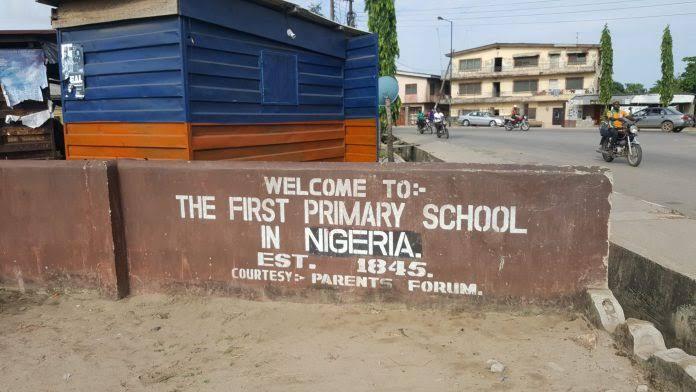Top 10 Oldest Primary Schools In Nigeria And Their Founding Years
Education in Nigeria didn’t start with the university or secondary school system—it began with humble primary schools set up by missionaries and colonial officials. These early institutions not only introduced formal education but also shaped the academic culture that still exists today.
Let’s take a look at the 10 oldest primary schools in Nigeria, their founding years, locations, and historical importance.
Oldest Primary Schools in Nigeria and Their Founding Years
| Rank | School Name | Location | Year Founded | Historical Importance |
| 1 | CMS Primary School | Lagos | 1842 | First formal school in Nigeria |
| 2 | St. Thomas’s Anglican Primary School | Badagry, Lagos | 1843 | Among the first mission schools in West Africa |
| 3 | St. James’s Primary School | Lagos Island, Lagos | 1843 | Built by CMS for early Christian converts |
| 4 | St. Saviour’s School | Ebute-Metta, Lagos | 1846 | One of the earliest boys' schools in Nigeria |
| 5 | St. Mary’s Catholic Primary School | Lagos | 1854 | First Catholic primary school in the country |
| 6 | Baptist Primary School | Abeokuta, Ogun State | 1865 | Introduced by Baptist missionaries in the South |
| 7 | Holy Trinity Primary School | Lokoja, Kogi State | 1865 | First known school in Northern Nigeria |
| 8 | St. Peter’s Primary School | Calabar, Cross River | 1864 | Pioneer school in Eastern Nigeria |
| 9 | St. Paul’s Primary School | Breadfruit, Lagos | 1876 | Historic CMS establishment in central Lagos |
| 10 | St. Andrew’s Primary School | Oyo State | 1879 | Launched as a training school for teachers |
1. CMS Primary School, Lagos (1842)
Often regarded as the first official school in Nigeria, it was established by the Church Missionary Society (CMS). The school emphasized Christian religious teaching, reading, writing, and arithmetic.
2. St. Thomas’s Anglican Primary School, Badagry (1843)
Founded shortly after CMS School, this school became a landmark for missionary-led education in coastal communities. Many early African clergy and professionals passed through this school.
3. St. James’s Primary School, Lagos Island (1843)
Also established by CMS, this school catered to children of early Christian converts on Lagos Island and played a crucial role in training early African clerks and teachers.
4. St. Saviour’s School, Ebute-Metta (1846)
This was a boys-only school known for strict discipline and academic excellence. It was run by missionaries and had a strong reputation for training future colonial officers and interpreters.
5. St. Mary’s Catholic Primary School, Lagos (1854)
This Catholic school marked the spread of Roman Catholic education into Nigeria and offered a more diversified curriculum compared to Anglican and CMS schools.
Regional Representation
These schools were not limited to one region:
-
Southwest Nigeria saw the earliest boom, thanks to missionary presence in Lagos and Abeokuta.
-
Northern Nigeria joined later, with Holy Trinity School in Lokoja marking the region's entry into formal education in 1865.
-
Eastern Nigeria was represented by St. Peter’s Primary School in Calabar, which became a model for later schools in the region.
Why These Schools Still Matter
Despite being over a century old, many of these schools still exist and operate as public or missionary-owned primary schools today. They have:
-
Produced notable Nigerian leaders, teachers, and professionals
-
Laid the foundation for formal education systems in West Africa
-
Inspired the curriculum models adopted in later colonial schools
-
Played major roles in Christian evangelism and literacy campaigns
Legacy and Impact
The influence of these schools goes beyond just classrooms. They became:
-
Centers of cultural transformation
-
Early grounds for English-language instruction
-
Breeding grounds for Nigerian nationalism, as educated elites emerged from them
Today, these schools stand as historic landmarks, a reminder of Nigeria’s journey from informal community teaching to structured formal education.
Final Thoughts
The top 10 oldest primary schools in Nigeria are more than just academic institutions; they are symbols of resilience, transformation, and progress. From Lagos to Lokoja, these schools paved the way for millions of Nigerian children to access education.
If you're interested in visiting or learning about their current status, school archives, or alumni, let me know—I can help you dive deeper into Nigeria’s educational heritage!



